This is not an article, but more like an "index for future writings." Mainly some takeaways.
Written by: Han Yang MASTERPA
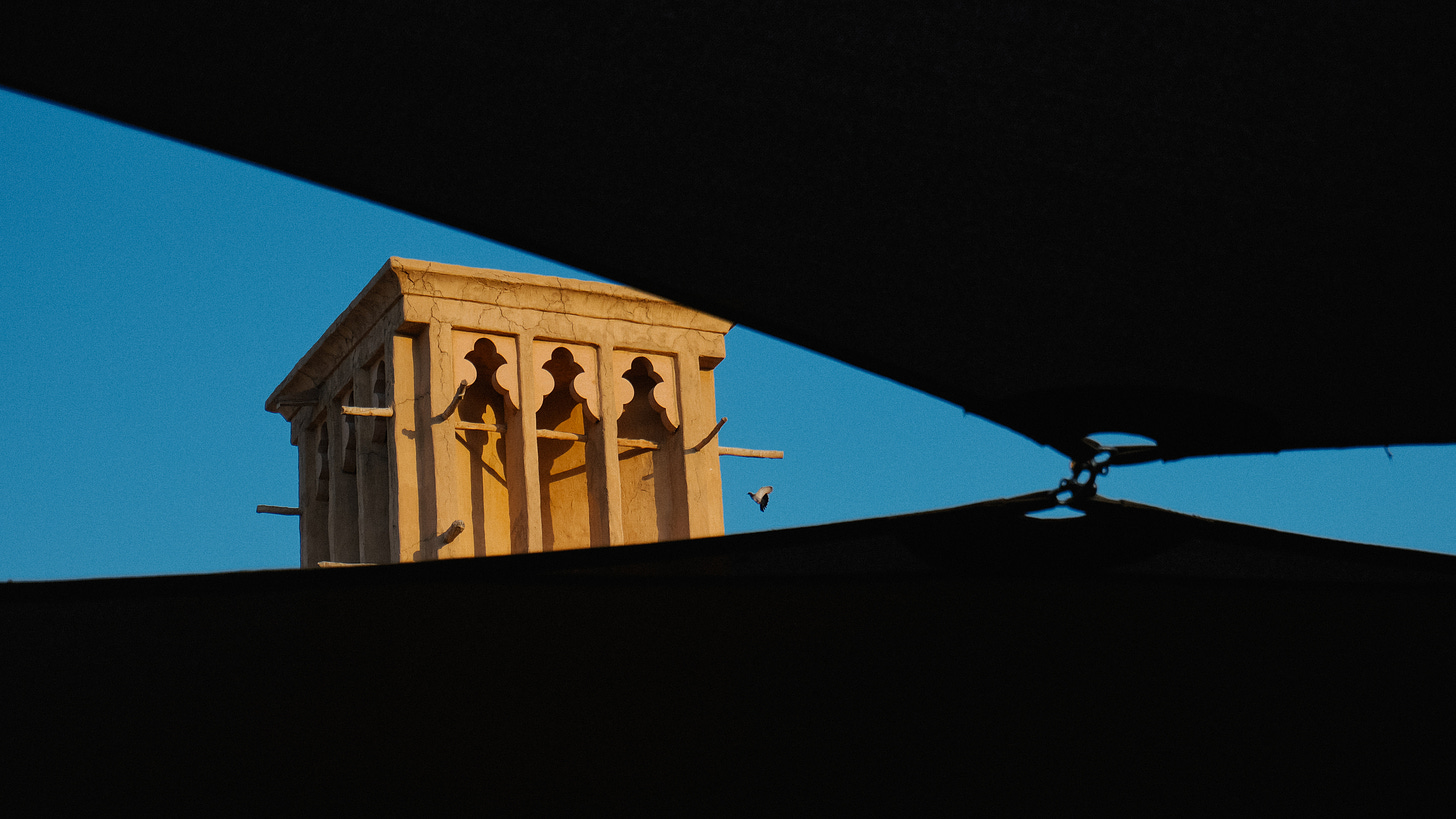
Before I had any feelings about the Middle East, my childhood had already left an impression of Dubai: Palm Island, the Burj Al Arab, and later the Burj Khalifa… Understanding the complex situation in the Middle East is difficult, but understanding that Dubai is wealthy is easy. Just like any place you have "some impression" of, the real experience can only be felt by being there yourself.
As the plane was about to land, I climbed over to the empty seat next to me to look out the window. I thought to myself, how come there are still a few minutes left until we arrive, yet there are no signs of a city? Upon landing, I understood; Dubai is a city that has been pulled out of the desert. After all, 20% of the world's construction cranes are here.
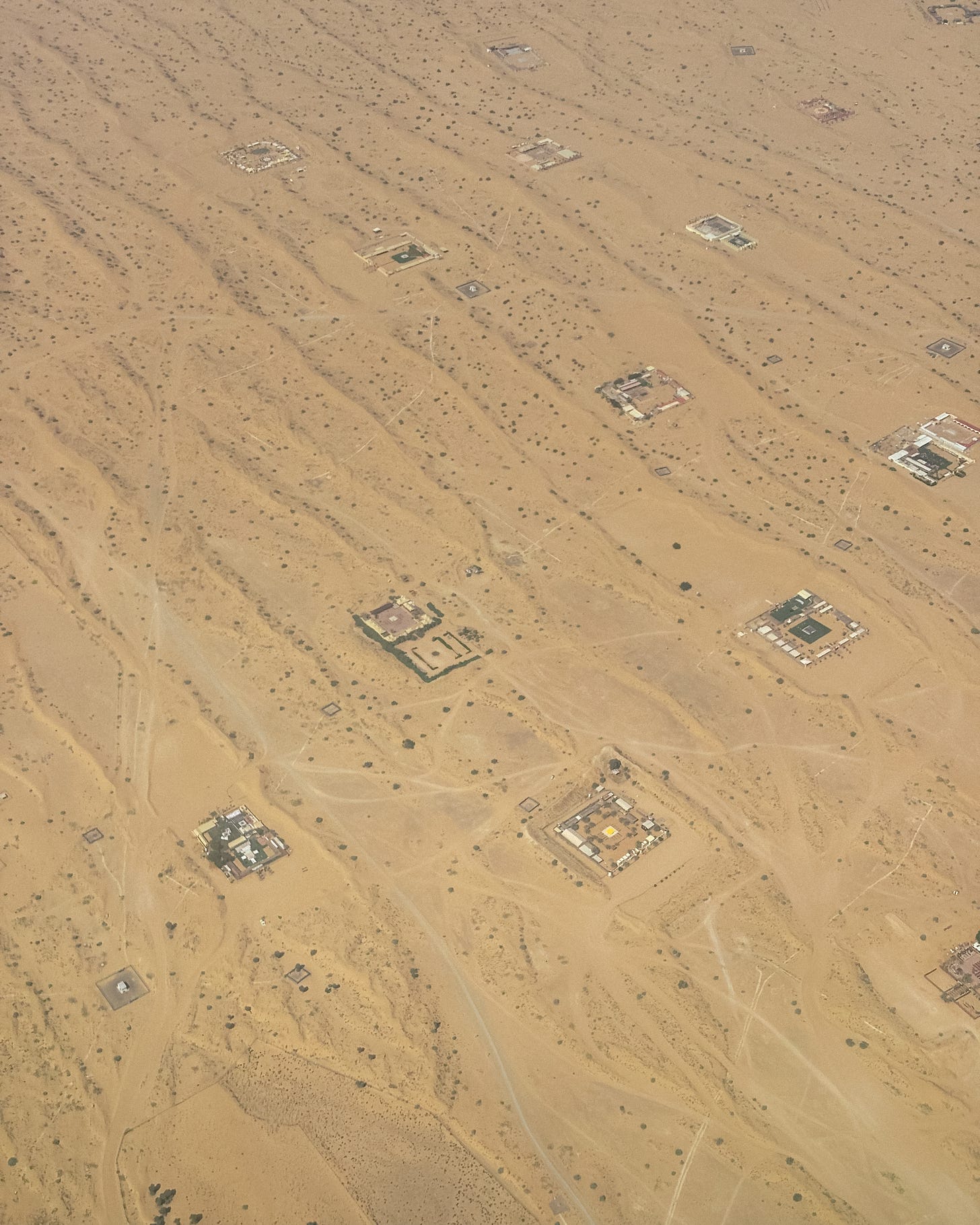
I was here to work, so I didn't have much time to wander around. I quickly strolled through both the old and new districts. Even coming from a country that has rapidly developed over the past forty years, it was my first time seeing such a stark contrast between a new and old district—it's not that "Dubai is folded" or anything like that; it simply feels like Dubai's new district has completely shed any historical baggage. I once read a line in "Tokyo Transmission" that said Tokyo is a place that "can have a future without a past"; thus, Dubai's new district truly is a place that can "completely abandon the past and still have a future."
For some reason, after landing, my post was first tagged in India before it got to Dubai. This led several friends to ask if I was going to India for content creation and what kind of topic would require me to go to both India and the Middle East? Actually, it was none of that. I didn't have any direct content production plans this time; I mainly came to attend Binance Blockchain Week (BBW).
To my shame, I have produced quite a bit of blockchain-related content, but I have only attended a few major events. The first was last year's Devconnect in Istanbul, the second was this year's Token 2049, and the third is BBW. I went to Turkey because I found many friends were going, and I should check it out; the reason for 2049 was a bit strange: I always felt that this conference would be hard to sustain its popularity every year, so I wanted to see it before it cooled down.
I had actually been preparing for BBW two months in advance, but I couldn't finalize my specific plans. Over the past three months, I had hardly spent two Fridays in the same place, so I had no way of knowing where BBW would be in the days leading up to it or how I would get there. I only confirmed my itinerary a week in advance, and in the meantime, I kept bothering friends at Binance to help me push various deadlines, which was quite embarrassing.
I think there are mainly three reasons for attending BBW:
I had previously written about Binance but had never had close contact with the company. When I was writing for Xiaohongshu, I could still hang out at the Starbucks in front of the office. Binance operates fully remotely, which didn't give me that opportunity.
I started contacting the team of "Sister Yi" half a year ago, wanting to see if there was a chance to communicate.
I had previously arranged to meet CZ, but for various reasons, we hadn't met in the past year. Later, CZ mentioned on X that he would attend this BBW, so I wanted to see if I could arrange a meeting.
All three of these ideas were realized and exceeded my expectations. Let’s discuss them one by one.
1. Binance
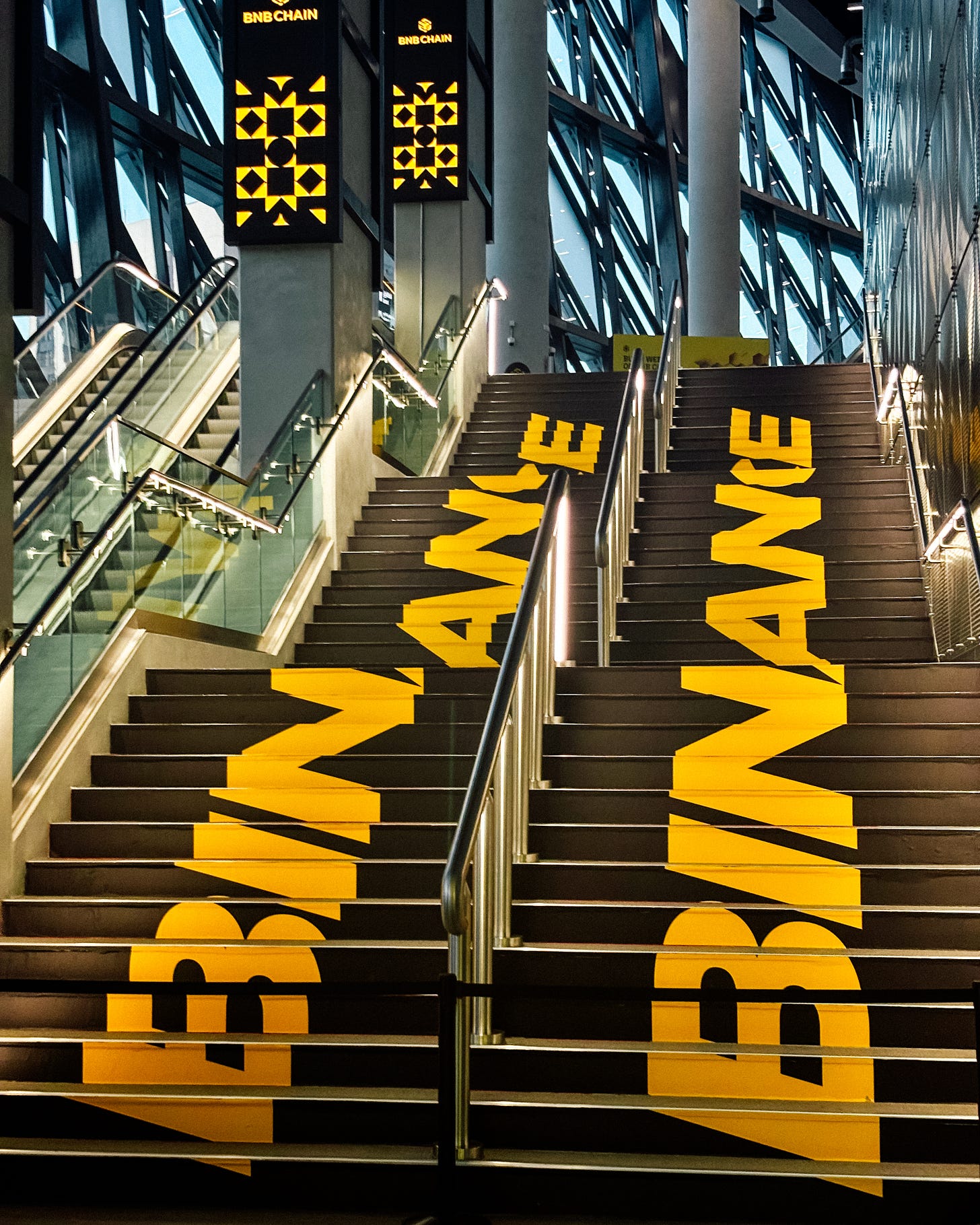
This time, Binance had about 200 employees organizing the event, and many others came to meet colleagues in person. So I basically took every opportunity to chat with various people. I didn't have specific questions; I just wanted to clarify one thing: as employees, what do they feel about this company?
The responses I received were enough to write a more serious article, but I'll just mention one point that impressed me the most: Binance employees believe that hard work is meaningful—they feel that their work is not pointless, that personal goals can align with organizational goals, and that as individuals, they can drive things to happen and change.
Talking to Binance employees and hearing them share how they joined the company and what they have done over the years was very interesting. People who feel their work is meaningless find it hard to clearly remember what they have done step by step.
This is not common in today's big internet companies. Many employees in large firms focus solely on executing the KPIs set above them and worry about being blamed if they don't meet them. Very few people feel that what they do truly contributes to the bigger picture. A few years ago, it wasn't like this; it was a more energetic and driven era where everyone felt they were part of a great journey. With the decline of startups and economic sluggishness, this mindset has become increasingly rare. Perhaps only ByteDance, during the rise of Douyin in the past two years, still shows the remnants of the old era.
Binance gives a sense of familiarity: work can be exhausting, but it cannot and will not be meaningless. Most people know what they are doing, which is quite rare. On the other hand, employees take pride in what they do. Working hard on something doesn't necessarily lead to pride; pride only comes from genuinely feeling that you have done something right.
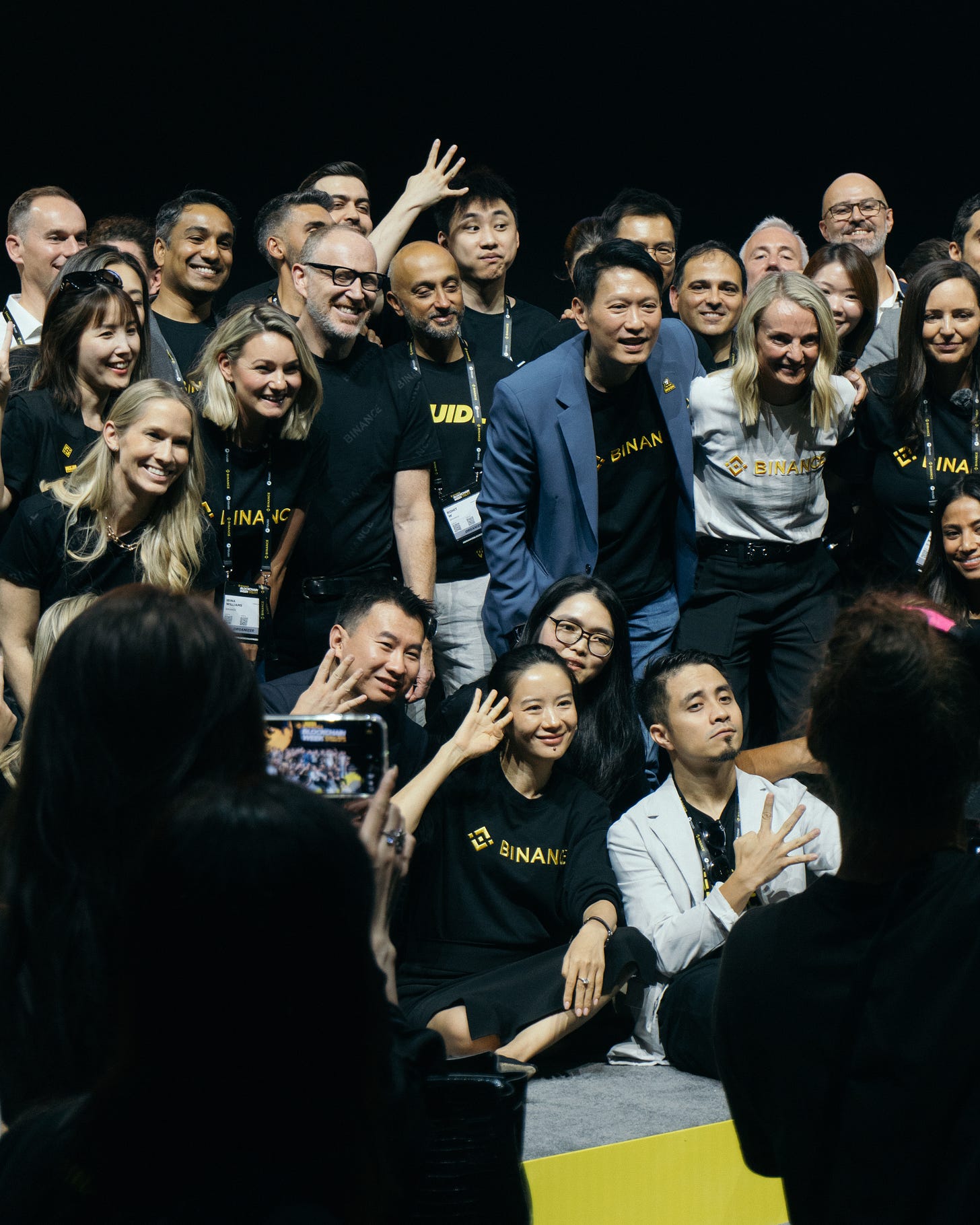
Moreover, this interaction deepened my "stereotype" of Binance: it is a company made up of normal people. Normal people have strengths and weaknesses, but that doesn't matter; normal people can communicate. Especially after encountering various bizarre, crazy, and paranoid companies, my feelings are particularly pronounced. Engaging with, writing about, and interacting with this company doesn't require special concern about any issues. Therefore, besides Binance, I am also willing to write for Xiaohongshu, and the biggest reason beyond personal interest is that both companies are made up of normal people. Those who understand Chinese internet companies know how deep this can go.
However, it does feel that working at Binance is indeed quite exhausting, rivaling even the most competitive big firms. This is just the nature of global remote work, which distances itself from the discussion context. If Binance were a standard company with a headquarters, facing an ever-lit office building, there would undoubtedly be online debates about this aspect.
2. Sister Yi
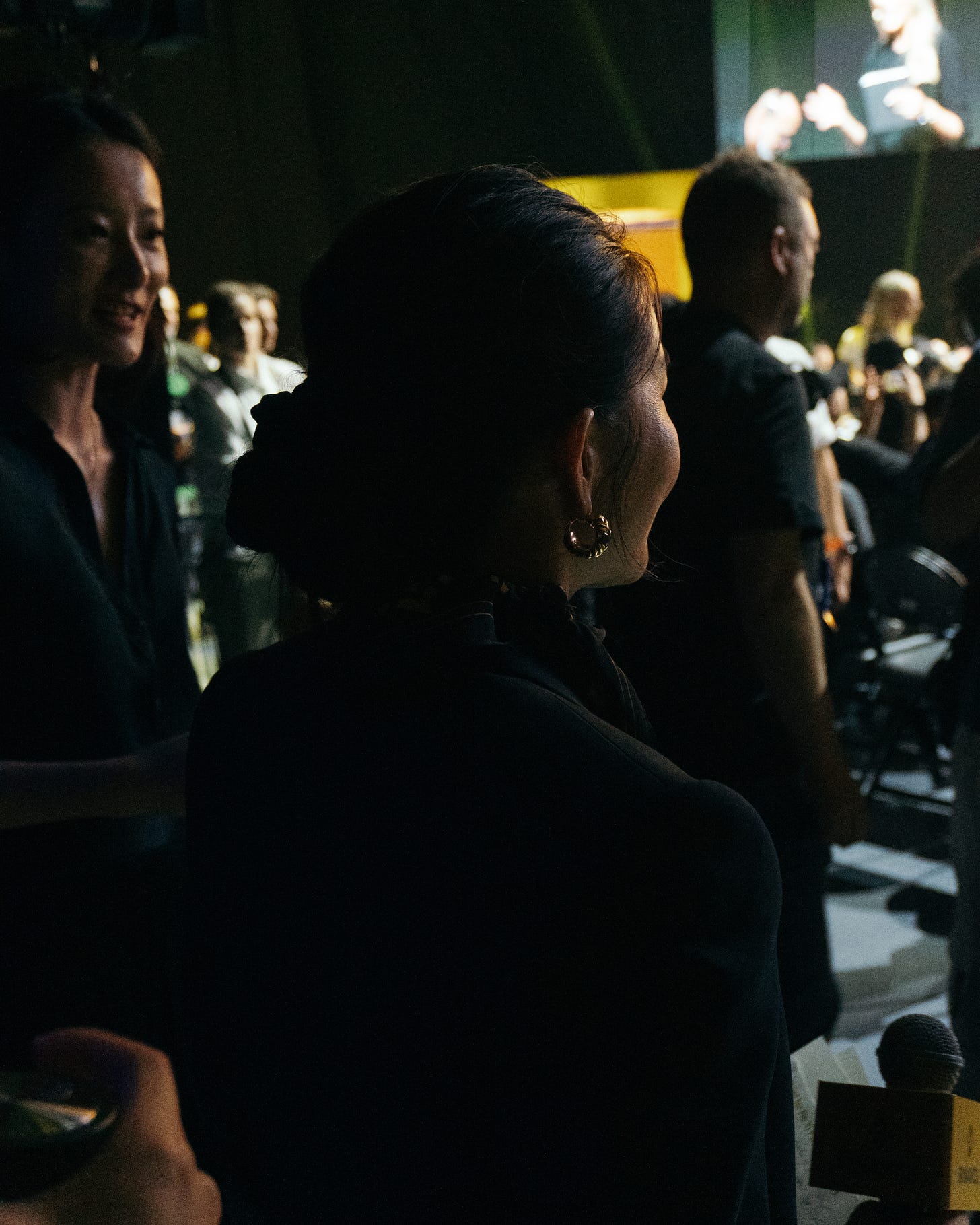
Indeed, there is a lot of information about Sister Yi online, and she has left many traces, but they are not particularly useful. Especially in the past two years, there has been even less information. Overall, there is a lot of gossip content, but very little valuable information. However, thanks to two related articles from last year, I got to know some friends who used to work at Binance. Everyone who has directly collaborated with Sister Yi has a high opinion of her. The tension between the online information fog and the offline real-person evaluations makes me very curious.
So, starting from the end of last year to the beginning of this year, I began to try to arrange meetings with Sister Yi through different channels to see if I could chat with her. Actually, arranging a chat with Sister Yi shouldn't be difficult, but my request was a bit "excessive": I didn't want to chat for two hours and then write a dialogue; I wanted to follow her more deeply over a longer period and write about bigger, more challenging topics. So I proposed whether there was a chance to spend a day or two with Sister Yi to see her daily work state.
Unfortunately, at that time, Binance had just finished an event in Dubai, and I was in Japan and missed it. Moreover, she usually keeps a low profile, making it not particularly convenient to interview her. So it wasn't until this BBW that I finally had the chance to meet Sister Yi. Friends at Binance remembered my proposal from a few months ago, so they helped me arrange a 30-minute one-on-one conversation, and I could also join her for a few events. In total, it was about two to three hours.
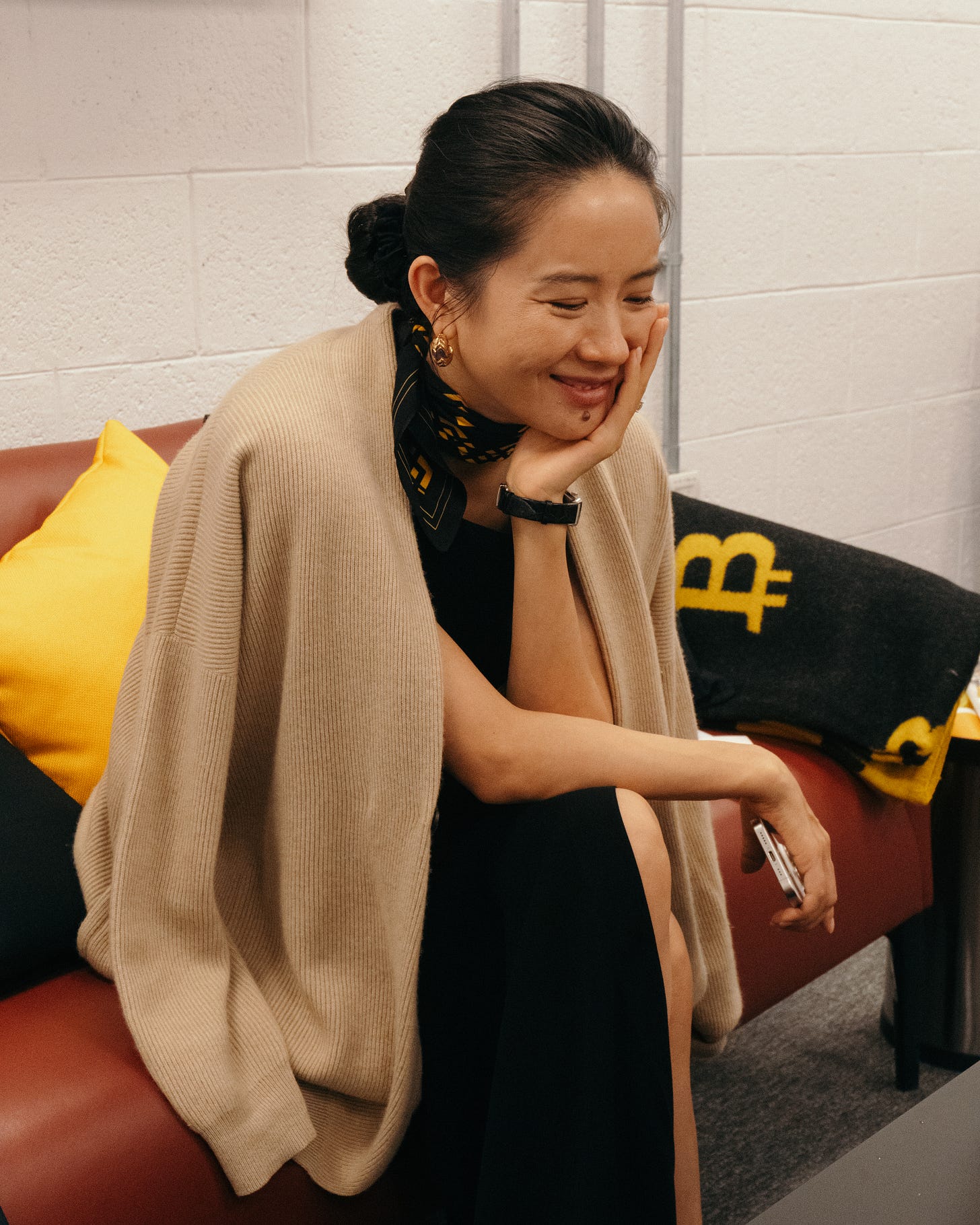
As a result, not only did I have nearly an hour of one-on-one conversation with Sister Yi, but I also followed her for nine hours from the afternoon until the event ended at midnight, and I even joined her for a meal in between. During the day, because they were short-staffed, I even helped carry some things—so much so that some people I met the next day thought I was a Binance employee.
Many people say that entrepreneurship is also a physical job, but very few can deeply understand this statement. I think Sister Yi must understand. I, as a follower, felt a bit tired, but she maintained her operational state throughout. Moreover, the night before BBW, she had a high fever and took various medications to suppress it just to come. During the day I followed her, I saw her finish a small box of throat lozenges. Later, I saw someone post a group photo on Xiaohongshu, saying she looked a bit haggard, considering she was sick.
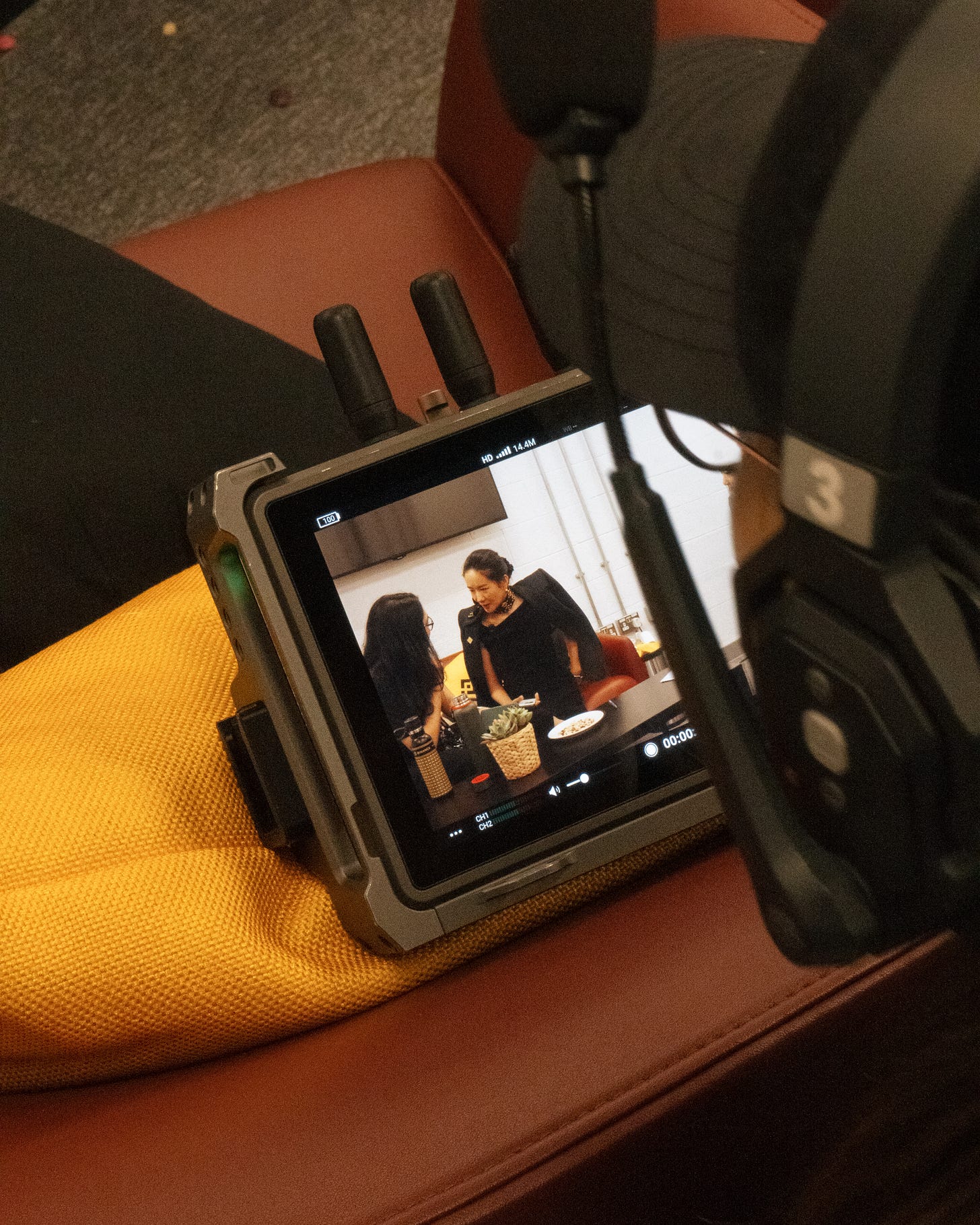
I won't elaborate on the specific content of our discussions here. There should be an opportunity for it to become an article, but the earliest it will be seen is probably six months later.
I just want to mention a particularly striking detail:
In the evening, she had dinner with two colleagues and me while waiting for the dishes to arrive, casually chatting about what everyone had been doing recently. She mentioned that she would scroll through Xiaohongshu before bed. One colleague asked if there were any interesting trending topics. She then asked if anyone had been following "Entering Ke Xue." One colleague and I immediately laughed; mature internet users tend to be actively found by trending topics. However, another colleague, having lived in the Middle East for a long time, wasn't very familiar with current Chinese internet trends. So Sister Yi quickly explained what it was about: including but not limited to who Ke Xue refers to, the problems the protagonist encounters, the controversies of feminism and anti-feminism on the internet, and the current extremism in the internet environment. A person who can quickly clarify trending events and also explain the background context and the larger environment is undoubtedly skilled. But what impressed me even more was what she said next.
After discussing Ke Xue, the dishes still hadn't arrived, and everyone was a bit hungry, so we sat quietly in our chairs. After a little while, she suddenly said to us, but also somewhat to herself: "In any case, regardless of which side's viewpoint, this is just participating in a grand act of online violence."
Indeed.
3. CZ
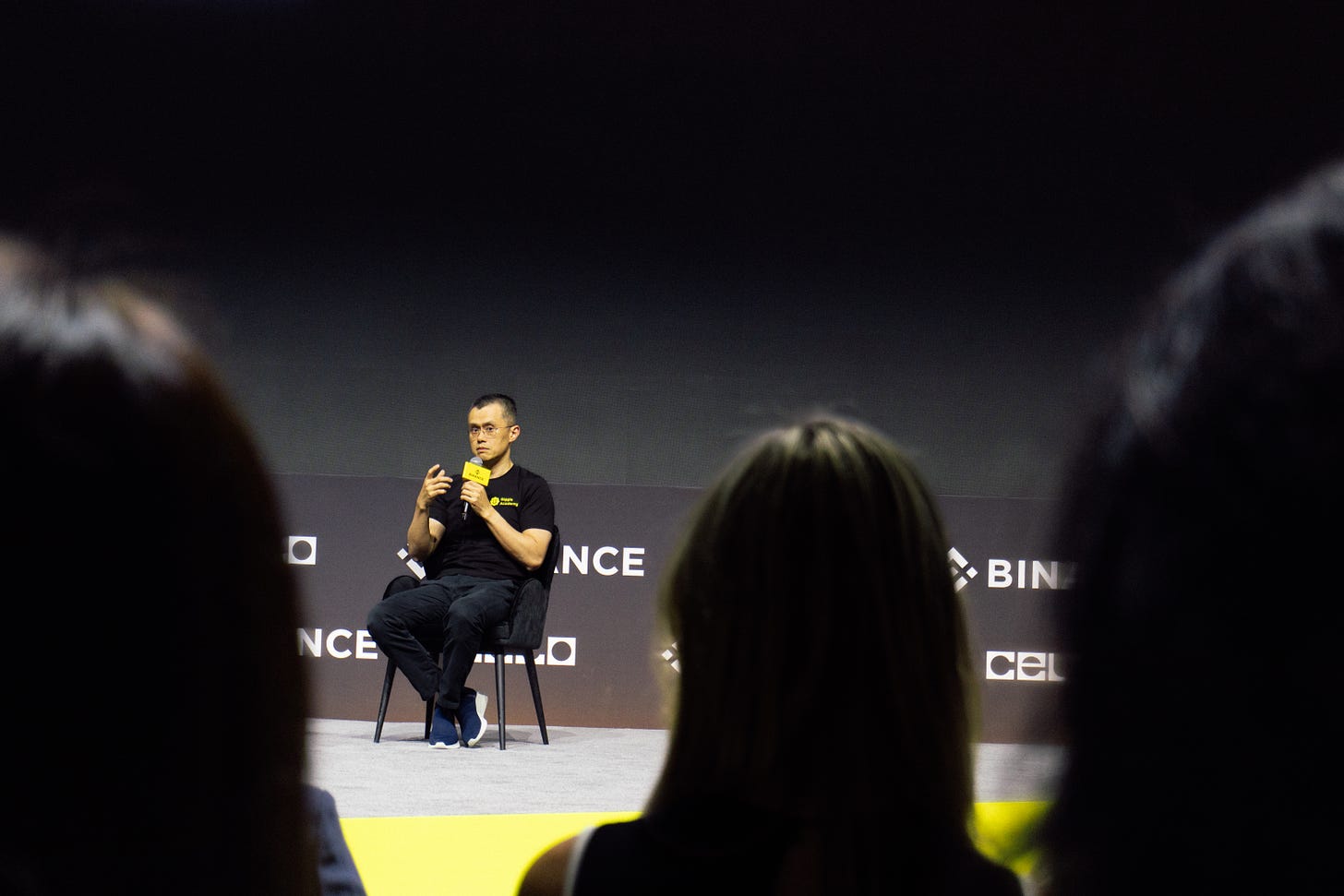
I finally met him after arranging it a year ago. I had imagined the situation when we would meet, but I never expected it to be like this:
In the morning, after my assistant brought me into the room, she said to go downstairs to meet him. I was alone in the room when suddenly the doorbell rang, and I didn't know whether I should go open the door. Because the notice said he wouldn't arrive at the venue until four in the afternoon, we were reminded to keep the specific location confidential and to post photos only after four. The meeting place wasn't a heavily guarded office building, so I thought maybe it was a neighbor's person who pressed the wrong button? Or someone was just looking for him? After all, he must have his own key to his space, and otherwise, his people could open the door.
So I didn't go to open it.
Then the doorbell rang a few more times, and I thought maybe I should just open it and see? As soon as I opened the door, CZ was standing there with a single shoulder bag and a huge sports water bottle in hand. He might have been a bit surprised that I didn't open the door, and I was also surprised that he just came alone.
After standing for a moment, he asked me if I was in the right place. I said, if you are CZ, then this place is indeed right. So he put down his bag and water bottle, and we sat down to chat. The conversation flowed easily, and he had a great sense of humor. As long as a person has enough humor and can accept self-deprecation, it’s impossible not to have a good conversation. At one point, we talked about the book he is writing, and he mentioned that he felt he had experienced quite a lot and could write about it; I couldn't help but laugh, as very few people can compare to him in terms of experiences.
Moreover, his Chinese is excellent—if you don’t know, I speak very quickly and have an accent, so many people (including native speakers) often can’t understand what I’m saying; I have to control my speaking speed every time I record a program. CZ not only understood what I was saying but also caught the jokes I threw out. In fact, the first question he asked me afterward was: "Can he understand what you are saying?"
I won’t go into the specifics of our conversation for now, but I hope to write something about it next year. After our chat, I suggested we take a photo together and took out my Polaroid 680. He recognized it as a Polaroid, and I said this machine is bigger than both of us, so whether it produces a picture is a matter of luck each time.
Sure enough, it jammed.
When I was packing up to leave, I fixed it, but at that moment, CZ's assistant came downstairs to pick someone up, leaving just the two of us in the room. I suggested we take a selfie; I had never tried a Polaroid selfie, but it should work.
This time it worked.
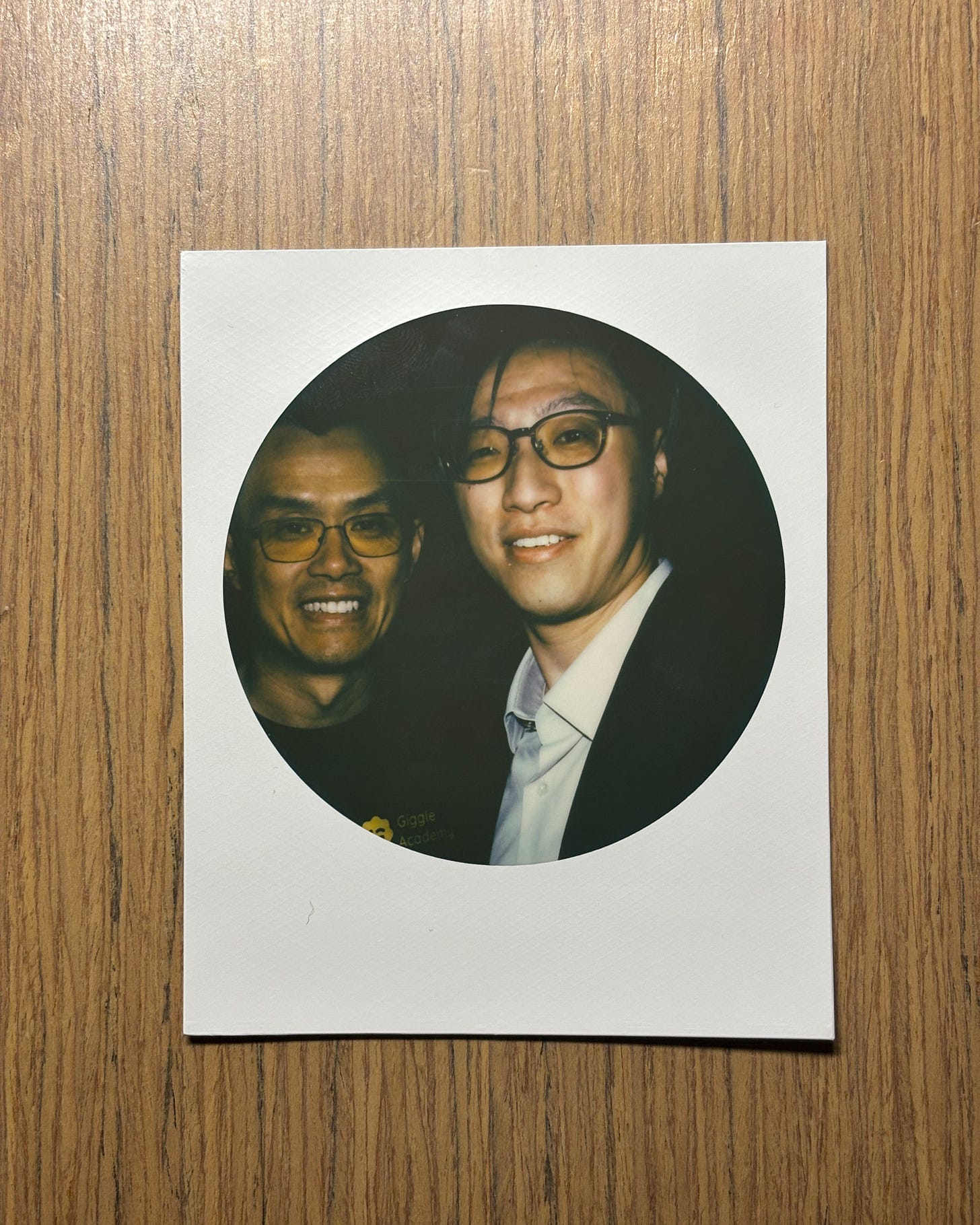
On the first day at the event, I overheard someone chatting, saying that it’s not easy to see CZ now, as he must be surrounded by bodyguards. Comparing that to the person sitting across from me with a sports water bottle, it felt quite surreal.
Also, if I had known the two of them had this style, I wouldn’t have gone through the trouble of bringing formal attire. Besides attending a friend's wedding, the last time I needed to wear formal clothes was before the pandemic. This time I thought I should be a bit more formal for the meeting. But whether it’s Sister Yi or CZ, they probably don’t care about such things.
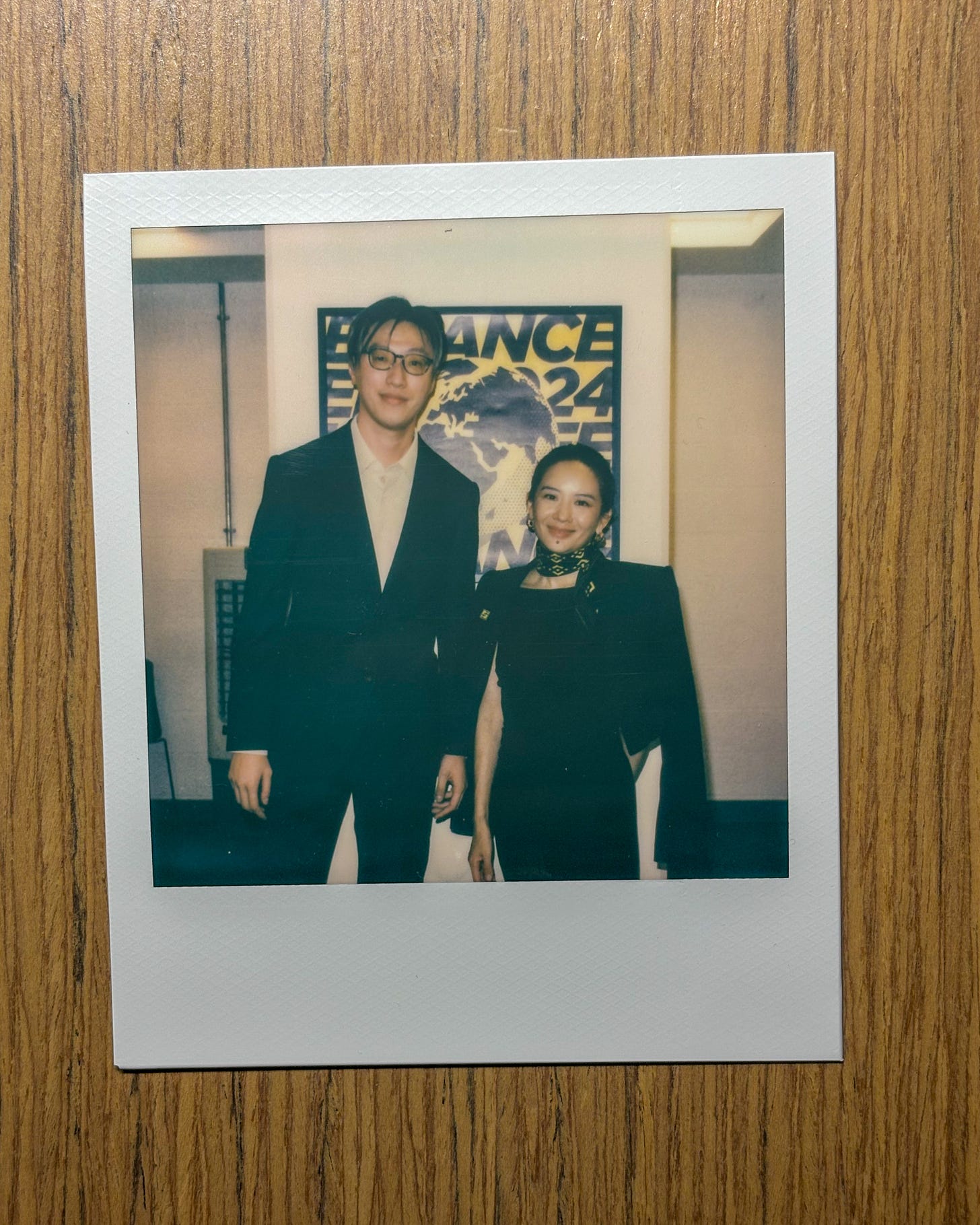
By the way, many friends were meeting me for the first time, so I want to clarify that I usually don’t have this style. I generally look like this, a typical street style from Northeast China:
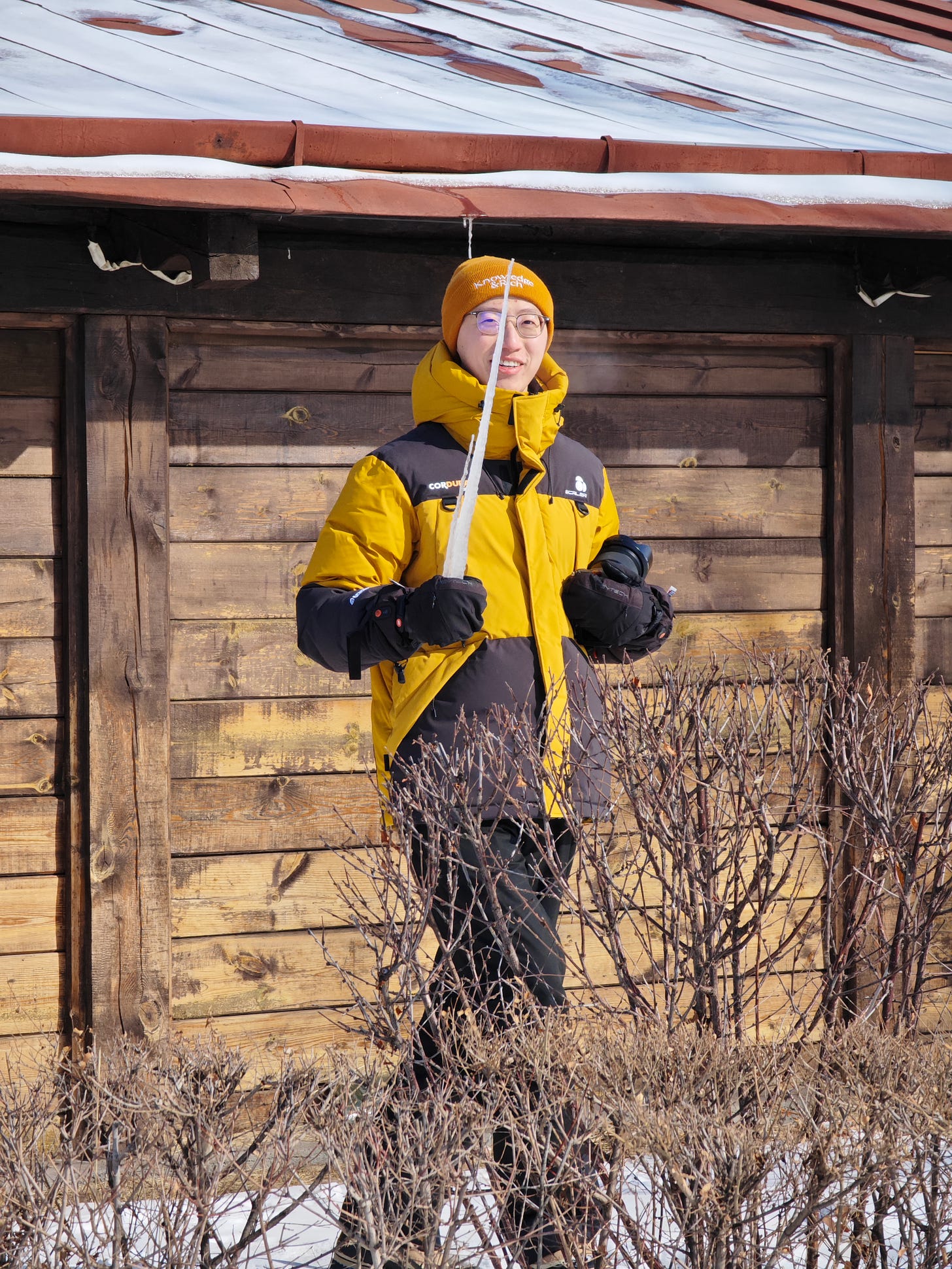
Photo by: Yang Dayi
This time I also met some online friends I had never met before, and many thought I was a full-time journalist. In fact, I am not only not a full-time journalist, but I also can’t be a good journalist at all. Over the past three years, I have gradually realized one thing: the skills required to be a good journalist are completely absent in Wang Hanyang.
A good journalist needs to have enough passion and patience for reporting, to be able to continuously follow a company; they also need to have a good understanding of the topics they cover. Moreover, journalists must endure long periods of tedious work while ensuring they can produce results. David Simon, the writer of "The Wire," is, in my mind, a model of a good journalist.
I can’t do it. All my interest in creation lies in the exploration itself, not in obtaining conclusions and results. Therefore, almost all my articles are about sharing my exploration journey, which has led to criticism for never providing conclusions—because I haven’t reached a conclusion myself; it’s just a journey we walk together. Another side effect is that many paths I finish exploring turn out to be uninteresting, so I don’t write about them.
The same goes for topic selection; I am only curious about those threads in my awareness of issues. I have no interest in things I don’t care about—this is quite unethical for a journalist.
Another question I was asked several times on this trip was where I find so much time to write. In fact, this question doesn’t exist; the vast majority of my energy is spent on work. Writing or photography, this kind of creation only takes up at most 20% of my time. It seems I produce a lot because I can consistently spend that 20% of my time on creation year after year.
Another common misconception about creation is that it’s like doing exercises that require constant answering. It’s not. Just to use an article as an example, if it takes 100 hours, the actual time spent writing might only be 20-30 hours. The rest of the time is spent on thinking and research before writing. Waiting for the subway, waiting for the elevator, or even sitting on the toilet… all these are times that can be used for thinking. The difficulty has never been how to create, but rather to keep creating.
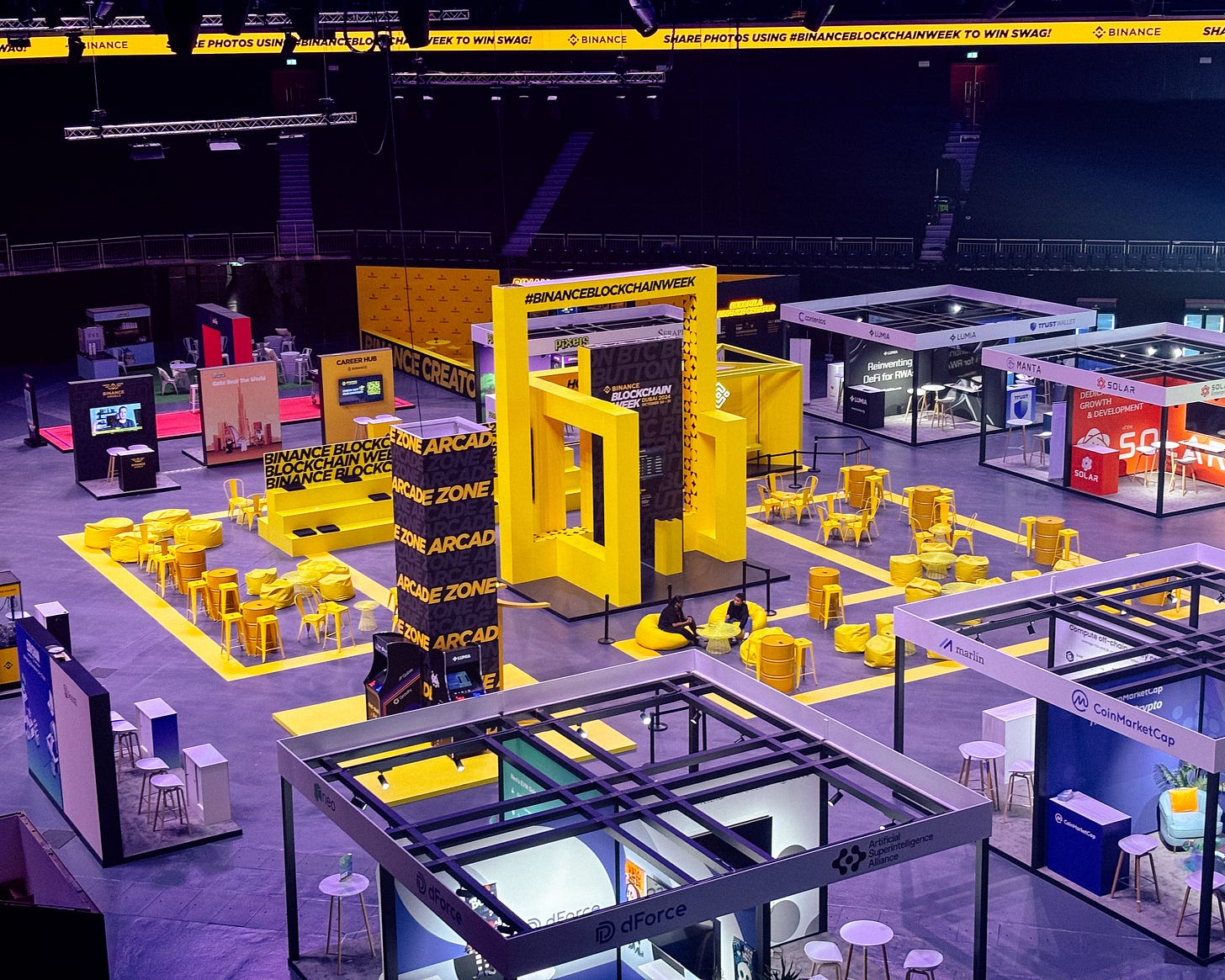
If not otherwise noted, all images are taken by me.
免责声明:本文章仅代表作者个人观点,不代表本平台的立场和观点。本文章仅供信息分享,不构成对任何人的任何投资建议。用户与作者之间的任何争议,与本平台无关。如网页中刊载的文章或图片涉及侵权,请提供相关的权利证明和身份证明发送邮件到support@aicoin.com,本平台相关工作人员将会进行核查。




